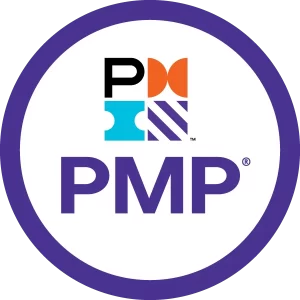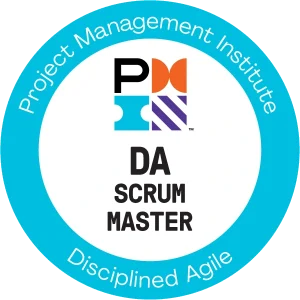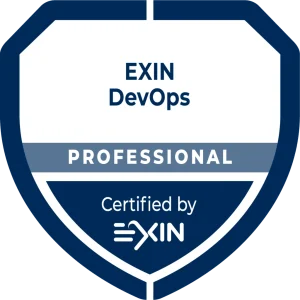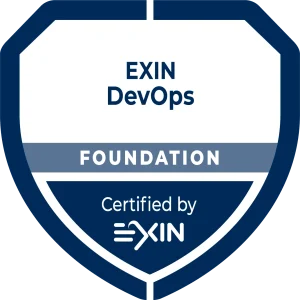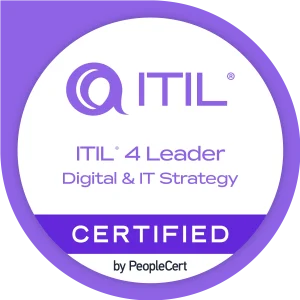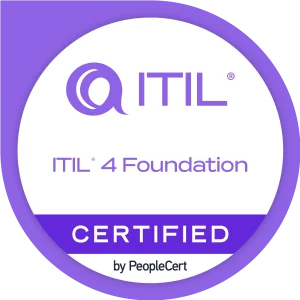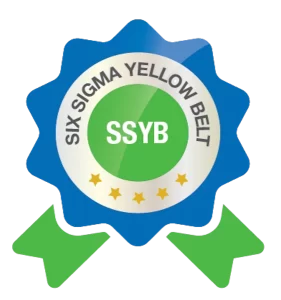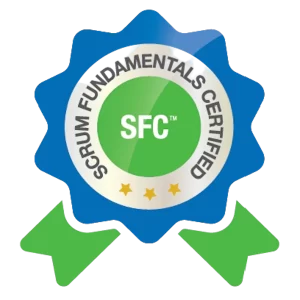My Skills
Main abilities and fields of expertise.
IT Management
As an accomplished IT manager specializing in the software industry, I possess expertise in Program, Project, Product, and Service Management. With a deep understanding of the software development life cycle, I excel at leading cross-functional teams, aligning business objectives with technology solutions, and ensuring exceptional service delivery to clients.
My skills include overseeing multiple projects, employing project management methodologies, driving product innovation, and implementing service delivery frameworks for high customer satisfaction.
PMP® certification, Project Management Professional
ITIL 4® certification, Information Technology Infrastructure Library
ITIL 4® Leader certification, Digital & IT Strategy
SSYB™ certification, Six Sigma Yellow Belt
Agile Methodologies
Agile Methodology is a type of project management process, mainly used for software development, where demands and solutions evolve through the collaborative effort of self-organizing and cross-functional teams and their customers. It is a collection of principles and practices that value adaptability and flexibility.
Agile aims to provide better responsiveness to changing business needs and therefore focuses on enabling teams to deliver in workable increments.
DASM™ certification, Disciplined Agile Scrum Master
SFC™ certification, Scrum Fundamentals Certified
Software Lifecycle (SDLC)
SDLC or the "Software Development Life Cycle" is a process that produces software with the highest quality and lowest cost in the shortest time possible. SDLC provides a well-structured flow of phases that help an organization to quickly produce high-quality software which is well-tested and ready for production use.
The SDLC involves six phases: Requirement analysis, Planning, Software design, Software development, Testing, Deployment.
Popular SDLC models include the (traditional) Waterfall model, the Spiral model, and Agile model.
EXIN® certification, DevOps Professional
EXIN® certification, DevOps Foundation
End-to-End Software Architecture
Software Architects design and develop software systems and applications. The purpose is to create software tailored to a clients’ specific needs or create products geared for consumers.
Having a solid technical background allows you to guide the team in the right direction, fully understanding the implications of technical choices.
I can act as high-level decision maker in the process, determining everything from design choices to technical standards, such as platforms and coding standards.
Negotiation
Negotiation is the ability of interfacing between client/stakeholders' expectations and the reality of what a team can deliver. To get everybody on the same page agreeing on the same outcome and final product, it is mandatory to negotiate everything from the details of what the deliverables will be to pricing and deadlines.
Business Development
Responsible for helping the Organization obtain better brand recognition and financial growth. It includes coordinating with Company executives, sales and marketing professionals, reviewing current market trends and proposing new business ideas to improve revenue.
Responsibilities include: Identify and research potential clients; Develop and maintain client relationships; Coordinate with sales teams to develop mutually beneficial proposals; Negotiate contract terms with clients and communicate with stakeholders; Monitor project teams to ensure contracts are executed as agreed; Gather useful information from customer and competitor data; Make and give presentations to prospective clients and internal executives.
Leadership
A team leader leads, monitors, and supervises a team to achieve the project goals, and take responsibility for the team’s successes and failures alike.
Team leaders motivate and inspire their team by creating an environment that promotes positive communication, encourages bonding of team members, and demonstrates flexibility.
A leader is able to delegate tasks to the right persons, to discover training needs and provide coaching, to listen to team members’ feedback and resolve issues and conflicts, to recognize high performance and reward accomplishments, to encourage creativity and risk-taking, to suggest and organize team building activities.
Motivation
Motivating a group of people over the course of a long effort can be the key for project success. Being able to motivate your team members to do their best even when deadlines get tight and projects get tricky is a very important ability.
Team members must be helped to believe in the project and continue to do their best to succeed because they want to, rather than fearing repercussions.
Communication
A good communication is the link between everybody involved in a specific project. The ability to communicate important information to all of the relevant parties is absolutely crucial to the success of the project.
A good communicator will be able to get people on board with their vision, to come to a common understanding, and know the best channels for communicating any particular piece of information.
CERTIFICATIONS
What I got with experience, study and exams.
